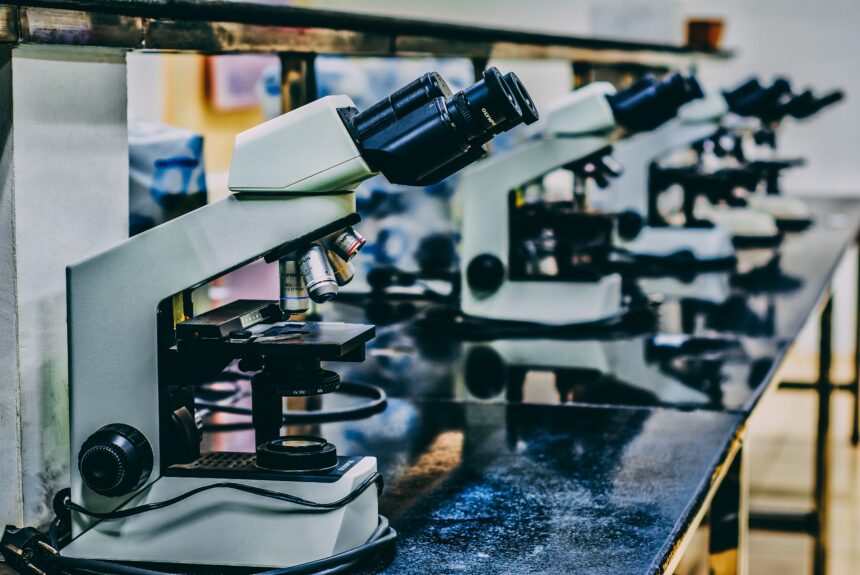While news often highlights the political divisiveness in Washington, there have been several bipartisan efforts to implement commonsense legislation to drive innovation, support small businesses, and maintain American competitiveness across the economy. One example is the American Innovation and Jobs Act, introduced by Senators Todd Young (R-IN) and Maggie Hassan (D-NH).
>>>READ: One Simple Policy Fix to Spur More Research, Development, and Innovation
The American Innovation and Jobs Act, which was also introduced in the last Congress by Sens. Young and Hassan, would make immediate expensing of R&D expenditures a permanent fixture of the tax code. Implemented in the 2017 Tax Cuts and Jobs Act, immediate expensing for research and development allows a company to fully deduct an R&D expenditure in the year that the expense was incurred, rather than over a multi-year period.
This provision expired in 2022, which forced companies to deduct R&D expenses over five and 15 years for domestic and foreign R&D expenses, respectively. As the R&D Coalition has estimated, this will reduce American R&D investments by over $4 billion annually over the next five years.
Effectively these changes are a tax on American research and development that puts American researchers and innovators at a competitive disadvantage. Alex Muresianu of the Tax Foundation recently explained in The Wall Street Journal:
“This change creates a tax penalty for two reasons. First, inflation means a deduction five years from now is worth less than a deduction today. Second, companies face an opportunity cost from being forced to spread cost savings over time. In real terms, these two factors create an 11% penalty on R&D investment under low, stable inflation. The higher inflation is, the higher the penalty becomes.”
The American Innovation and Jobs Act would also make it easier for small businesses to qualify for the refundable R&D tax credit, by updating the definition of a “qualified small business.” To qualify currently, a small business can be as old as five years, with up to $5 million in revenue. Under the bill’s provisions, a qualified small business would be one that is eight years old or younger, with a revenue of up to $15 million. The bill would also revise the R&D tax credit for these small and new businesses to $500,000 for the 2023 taxable year (up from $250,000 today) and incrementally increase its value each year until it reaches $750,000 in the 2033 tax year.
Making it easier for more private sector entities to invest in research and development will have a demonstrably positive impact on the economy. In 2020, private sector R&D expenditures totaled $532 billion, or 2.6% of the U.S. GDP. Of these investments, the R&D Coalition estimates that 15% were made by small businesses with less than 500 employees. Expanding the pool of qualified businesses will naturally increase involvement in this space.
>>>READ: Battelle, Climeworks, Heirloom Carbon Team Up to Advance Direct Air Capture
Economic benefits aside, the American Innovation and Jobs Act also provides a hedge against China, who is quickly becoming a global leader in R&D spending. In fact, China provides a “super deduction” for R&D expenses of up to an extra 100 percent on R&D. As Senator Young said in a press release, “Maintaining and encouraging research and development (R&D) activities here in the United States is critical to providing high-quality jobs for Americans and ensuring our country remains competitive with our international rivals, most notably China…If we want to outcompete and out-innovate the Chinese Communist Party, we must pass this legislation as soon as possible.”
Immediate expensing has also been shown to have noticeable environmental and clean energy benefits. As Phillip Rossetti of R Street found, after the Tax Cuts and Jobs Act was passed energy and environmental R&D jumped by 11.8%, or $3.3 billion. For context, energy and environmental R&D expenses increased by only 2 percent from 2012 to 2017.
The American Innovation and Jobs Act, and similar legislation introduced by Congressman Jodey Arrington (R-TX) includes much-needed improvements to the tax code that will make it easier for American businesses to innovate. The American Innovation and Jobs Act will empower innovators in the United States, allowing America to retain its global leadership in R&D while benefiting our economy, energy sector, and environment.
The views and opinions expressed are those of the author’s and do not necessarily reflect the official policy or position of C3.
